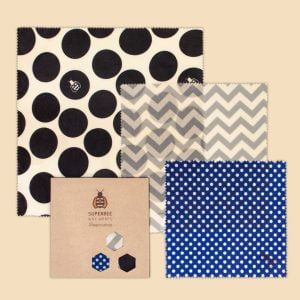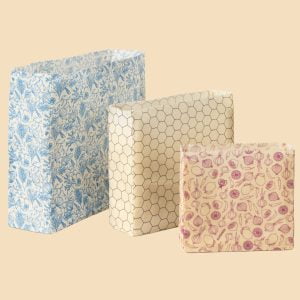How Can I Be Zero Waste in my Bathroom?

Thinking about transforming your bathroom into a haven of sustainability and environmental consciousness? You’ve come to the right place to learn about sustainable bathroom products!
Zero waste living in the bathroom isn’t just a trend; it’s a lifestyle choice that empowers people to minimize waste and make eco-friendly choices daily.
Environmental issues are becoming increasingly urgent, making it crucial to recognize the impact of our actions. This of course, is necessary even in the seemingly small aspects of life like our bathroom routines.
But what can embracing zero waste principles in the bathroom really do? We can significantly reduce our carbon footprint, minimize plastic waste, and contribute to a healthier planet for future generations!
Throughout this guide, we explore the concept of zero waste living in the bathroom, discuss the importance of reducing bathroom waste, and provide practical tips and strategies for making sustainable swaps and adopting eco-friendly practices. Keep reading to learn more about how we can all make a positive difference, one bathroom swap at a time.
Understanding Zero Waste as a Concept
Zero waste living revolves around the idea of minimizing waste generation and maximizing resource efficiency. It’s a philosophy that aims to send as little trash as possible to landfills and incinerators by rethinking consumption patterns and adopting sustainable practices.
At its core, zero waste encourages a shift from the linear “take-make-dispose” model to a circular economy where resources are used efficiently, products are designed for longevity, and waste is reduced, reused, and recycled. This mindset extends beyond each individual’s actions to encompass systemic changes in production, distribution, and consumption.
In the context of the bathroom, embracing zero waste means reevaluating our choices regarding personal care products, toiletries, and cleaning supplies. It involves opting for package-free alternatives, choosing products with minimal environmental impact, and finding creative ways to reduce, reuse, and recycle bathroom waste.
But is it really that crucial to reduce bathroom waste?
Importance of Reducing Bathroom Waste
The bathroom is one of the most resource-intensive areas of the home, with numerous products packaged in plastic and single-use containers. From toiletries to cleaning supplies, the amount of waste generated in the bathroom can be staggering.
Plastic packaging from personal care products often ends up in landfills or the ocean. Unfortunatley, this tends to harm wildlife and ecosystems. By choosing package-free or plastic-free alternatives, we can help prevent plastic pollution and protect marine life.
Reducing bathroom waste has the potential to conserve valuable natural resources and reduce energy consumption, too. Many conventional personal care products and cleaning supplies contain ingredients derived from fossil fuels and require extensive energy inputs for production and transportation.
By choosing sustainable alternatives like refillable or biodegradable products, we can minimize our reliance on finite resources and decrease our carbon footprint in the process. This is where several simple zero waste bathroom swaps can help.
Zero Waste Bathroom Swaps
Traditional bathroom products often come packaged in single-use plastic containers. Each day, this contributes to plastic pollution and environmental degradation.
Making simple swaps to more sustainable options can significantly reduce our environmental impact. With this in mind, let’s explore some simple zero waste bathroom swaps.
Switching to Natural Deodorant in Paper Tube
Conventional deodorants often come in plastic packaging. By switching to natural deodorants packaged in paper tubes or compostable materials, you can reduce your plastic waste and minimize your environmental impact.
Natural deodorants are formulated with ingredients like baking soda, coconut oil, and essential oils. These ingredients provide effective odor protection without harmful chemicals.
Embracing Soap Bars Over Liquid Soap
Liquid soaps typically come in plastic bottles that are difficult to recycle. Soap bars, on the other hand, offer a plastic-free alternative that’s more eco-friendly and sustainable.
Made from natural ingredients like olive oil, shea butter, and essential oils, soap bars are gentle on the skin and can be easily stored in reusable containers. By choosing to add soap bars to your bathroom routine, you can significantly reduce your plastic waste and support sustainable skincare practices.
Transitioning to a Reusable Safety Razor
Disposable plastic razors constantly contribute to the growing problem of plastic pollution and waste. Transitioning to a reusable safety razor is a sustainable alternative that can help minimize your environmental footprint.
Safety razors are typically made from durable materials like stainless steel or chrome-plated brass. These are designed to last a lifetime with proper care, too!
Strategies for Zero Waste Toiletry Practices
Finding Alternatives to Traditional Toilet Paper
Transitioning away from traditional toilet paper is a significant step for any zero waste bathroom. Many people go for eco-friendly alternatives such as bamboo toilet paper, which is biodegradable and sustainably sourced.
Reusable cloth wipes or bidets also offer effective alternatives that reduce paper waste and contribute to a more sustainable bathroom routine. Making these simple swaps can have a significant impact on reducing waste and promoting environmental conservation.
Implementing Sustainable Oral Care Solutions
Oral care products like toothbrushes and toothpaste tubes contribute to plastic waste in landfills. Choosing sustainable oral care solutions helps to mitigate this environmental impact.
Consider switching to bamboo toothbrushes. These are biodegradable and compostable. You can also try using SuperBee Dentos toothpaste tabs to minimize waste. These alternatives not only reduce plastic waste but also promote eco-friendly practices in the bathroom.
Addressing Common Concerns and Misconceptions
In the move towards zero waste living, it’s common to encounter concerns and misconceptions that may hinder progress. One prevalent misconception is that zero waste living requires drastic lifestyle changes or sacrifices. However, embracing a zero waste lifestyle doesn’t necessarily mean giving up modern conveniences or living an austere life. Instead, it’s about making conscious choices and gradually transitioning to more sustainable alternatives.
Some people worry about the difficulty of maintaining zero waste practices consistently. While it may seem daunting at first, incorporating small changes into daily routines makes a significant difference over time.
Consistency is key, and every small effort contributes to reducing waste and environmental impact! Just one small change can have a ripple effect, minimizing your contribution to the growing waste problem.
Some also worry that zero waste living isn’t feasible for everyone due to factors like cost or accessibility. While there may be challenges, there are lots of creative solutions and resources available to overcome them!
We want you to feel empowered to pursue zero waste living in the bathroom and beyond. Through education, support, and community engagement, we’re confident your journey towards sustainability will become more achievable and rewarding.
Embracing a Zero Waste Lifestyle in the Bathroom
Transitioning to a zero waste lifestyle in the bathroom is a powerful way to reduce environmental impact and promote sustainability. By making simple swaps and adopting eco-friendly practices, we can minimize waste, conserve resources, and protect the planet for future generations.
Reflecting on the benefits of zero waste living, we’ve explored strategies for minimizing waste in various aspects of bathroom routines. While overcoming challenges and addressing common concerns, we’ve learned that small changes can make a big difference when it comes to sustainability.
Let’s remember the importance of taking small steps towards a greener future. Whether it’s switching to natural deodorant, embracing soap bars, or exploring alternatives to traditional toilet paper, every action counts towards creating a more sustainable world.




